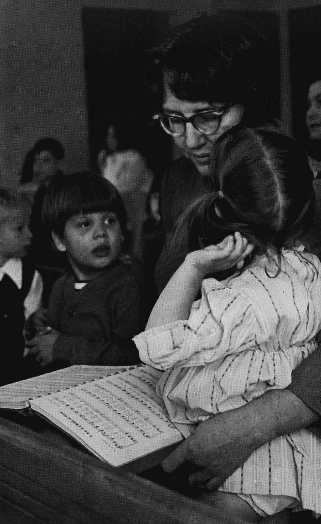Articles/Essays – Volume 06, No. 1
The Ultimate Disgrace
After writing Family Kingdom, which was the story of my father and the great family of six wives and three dozen kids, I made a special effort to become acquainted with those of my brothers and sisters whom I had never met. The last one was Rhea, daughter of the first wife, May. Rhea had a small acreage east of Los Angeles where she kept a race horse and put on productions of her own composition with handicapped children.
She told me a story that certainly should have been in the book, because it pertained to the most serious aspect of my father’s fall from grace.
A number of people had tried, with various degrees of tact, to dissuade me from writing the book. The biography of a former member of the Council of the Twelve who had been unchurched for taking wives after the Manifesto just wasn’t, it had been suggested, inspiring subject mat ter. Then one man bluntly told me why
I should forget it: “I simply can’t under stand why you persist in planning a biography of such a man,” he said. “But I’ll tell you this: if you write this book, it should be honest. And how would you like the world to know that your father died in debt!”
Now I knew the very worst thing.
He leaned forward across the desk. “After your father’s death a committee of the brethren had to compromise his debts for fifteen cents on the dollar!” He leaned back. “How would that look in print?”
Perhaps only someone born in Utah can appreciate the close correlation between spirituality and worldly success. It had been perfectly proper for Apostle John W. Tay lor to have plunged heavily into vast pro motional projects — dams, land development, irrigation networks, mines, colonization, timber — anything big (his letterhead said, “Large Tracts Only”). During this period a number of his church associates had become financially over-extended. In fact, a favorite faith-promoting story of the very man who warned me against writing the book concerned his own predicament of being deeply in debt at the time he received a mission call, and how the Lord had shown him the way out, through stock manipulation, so that he could leave the mission solvent. I gathered that if John W. Taylor had passed away during one of his affluent periods (he made and lost several fortunes), perhaps everything else about his life would be acceptable biographical material; the disgrace was not going into debt, but dying that way.
Rhea cast light on this aspect of Father’s life. She had been his secretary during the early years of the century, when he had offices at Salt Lake in the Judge building and was juggling big deals. But as Christ mas approached, he was pressed for cash. He always liked to observe holidays, and how could he make this a memorable one for his family?
And then, just two days before Christ mas, a deal went through. It wasn’t a large one, but it meant $5,000 in cash. This was hard money at a time when labor could be hired for a dollar and a half a day, and the income tax hadn’t been thought of. Five thousand dollars was, in fact, a small fortune.
“First off,” he told Rhea, “I want each of my wives to have a new dress for Christ mas, and every child to be outfitted from top to toe.”
As Rhea wrote checks to cover this, Broth er Oldroyd arrived for an appointment. He had been a prosperous businessman who had fallen on ill health and hard times. Rhea was just closing the checkbook when Father came from the office with his visitor.
“While you’re at it, Rhea, make a check for $200 for Brother Oldroyd.”
The next visitor was Sister Jones, a widow. Father had Rhea write her a check for $85 to forestall threatened eviction by her landlord. All day long people came with hard-luck stories, and none went away empty-handed. The next day the stream of visitors continued. Late in the after noon, Rhea and her father were getting ready to leave the office when Sister Soren son arrived. Father talked to her briefly, then told Rhea to make a check for $250.
“But, Father, we only have a balance of $183.71.”
Without an instant’s hesitation, he said, “Well, then, make it for $183.71.”
“Yes, Father.”
When Sister Sorenson had gone, Rhea and her father put on coats and hats, locked the office, and went down to the street. Darkness had fallen; the air was crisp and bitter. Iron tires of a passing carriage creaked on the dry snow.
“Perfect weather for Christmas Eve,” he observed zestfully as they crossed to the tracks to wait for a street car. “We have indeed been blessed to be able to give all members of the family new outfits.”
With an edge to her voice, Rhea said, “And it was a blessing to be able to help so many others.”
“Yes, indeed!” he agreed heartily.
As a street car approached, he said, “This is yours, Rhea. Give my love to your mother and the family.”
“Then you’re not coming home with me?”
He shook his head. “No; it’s Nellie’s turn.” He alway tried to be impartial about such things.
He helped Rhea onto the step, then said, “Oh—do you have a nickel?”
She gave him car fare from her purse. The bell clanged and as the car moved away he waved farewell, a big smile on his face and the borrowed nickel in his hand the only money possessed by a man who had just yesterday come into five thousand dollars.


 Back to full Issue
Back to full Issue

